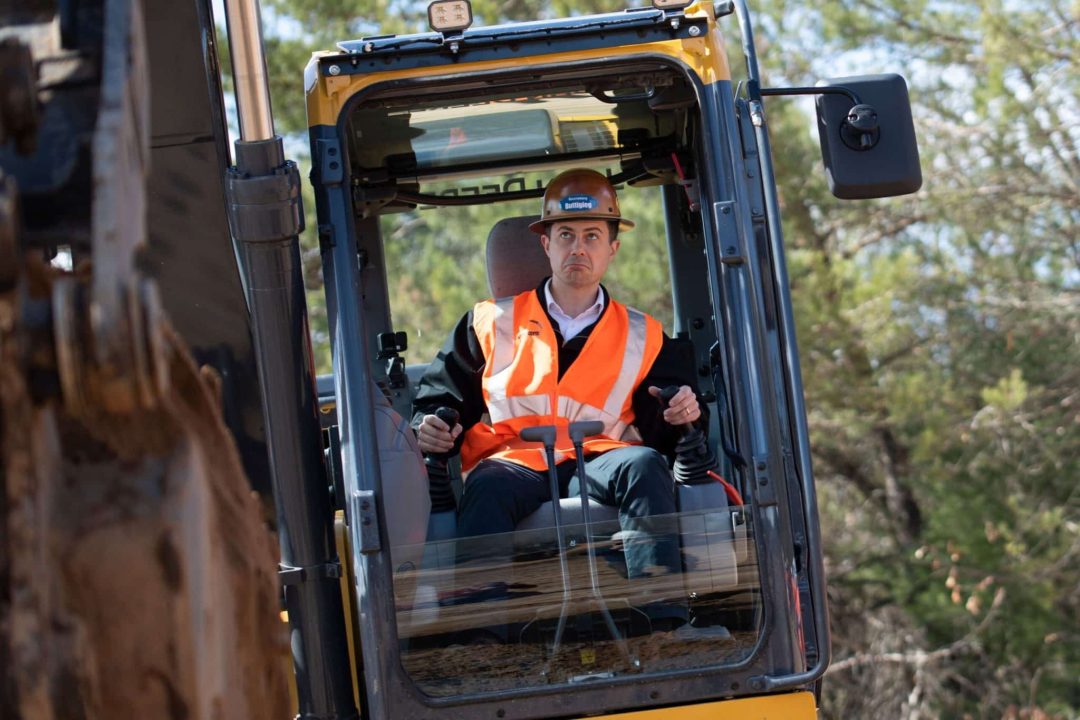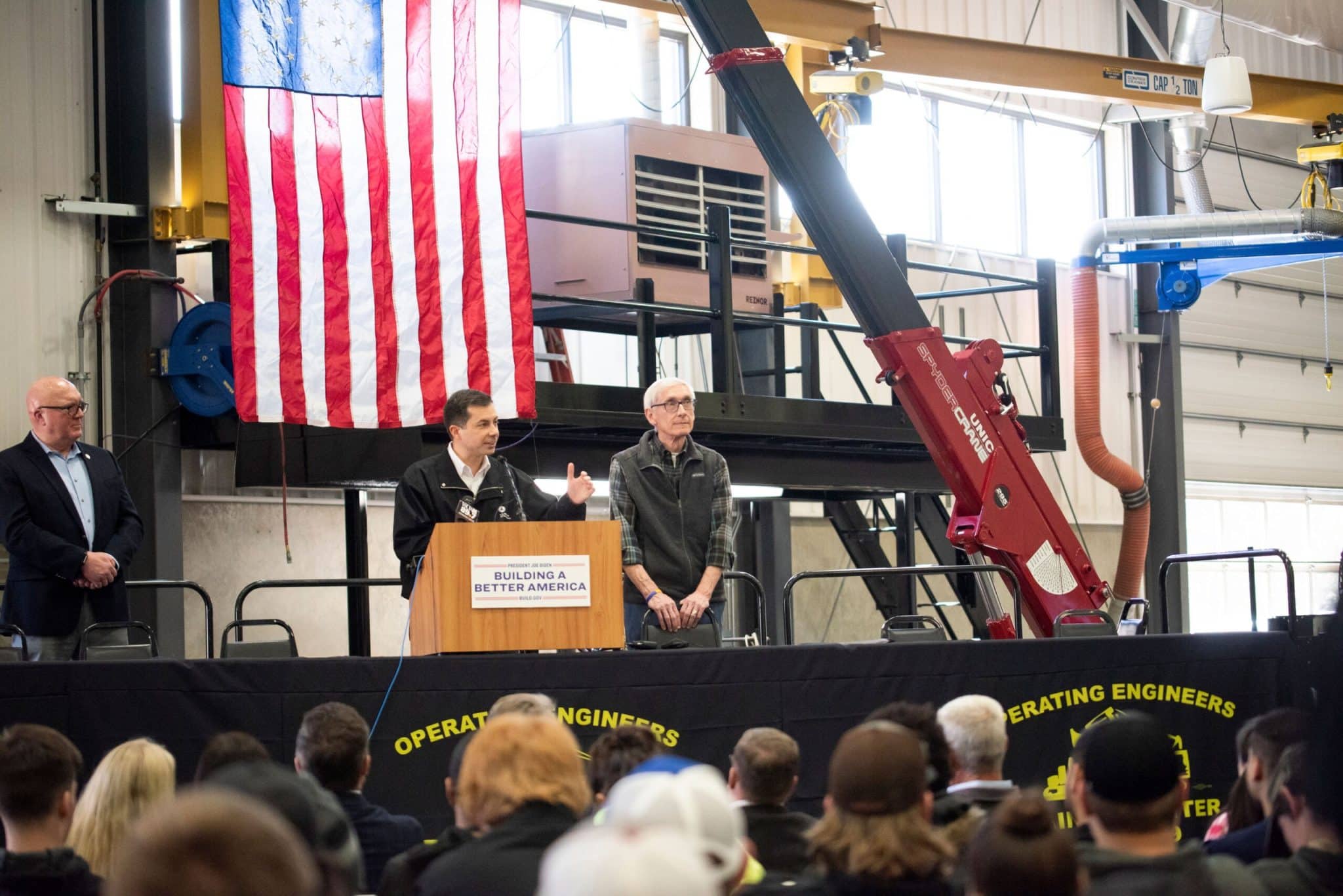
Coloma, Wisconsin— Transportation Secretary Pete Buttigieg chose a facility in rural Wisconsin that trains people to work on large, diesel-powered construction equipment to extol legislation that targets fossil fuels.
Buttigieg and Wisconsin’s Democratic Governor Tony Evers visited the Wisconsin Operating Engineers Training Center in Coloma on April 19 during “Externship Day,” which brings hundreds of high-school students from around the state to learn about careers in skilled trades involving operating heavy construction equipment. Even Buttigieg hopped into an excavator and scooped out a bucket full of dirt, giving the press gaggle something to shoot.
Part of the visit’s goal was to talk up the $1.2 trillion “infrastructure” legislation, H.R. 3684, signed into law in November. The New American asked Buttigieg about what many see as a contradiction, doing a victory lap over anti-fossil-fuel legislation in front of an industry heavily dependent on diesel fuel, an industry that will be the most difficult to turn “green,” if even possible.
“Of course, the equipment will become technologically improved over time. It will become more sophisticated over time, and as you see happening throughout the transportation sector, the way that propulsion works for the next 100 years is going to be different than how it’s worked for the last 100 years,” Buttigieg answered.
TNA asked heavy-equipment operators Tim and Brian, who were directing traffic in the parking lot, what they thought of the Biden administration’s goal of completely phasing out the type of fuels their jobs depend on.
“I think they’ll adjust with technology,” Tim said. “I don’t think fossil fuels being phased out is going to work immediately. Down the road maybe.… They’re working on it. There are hybrid ’dozers in the field I’ve operated before. But it still involves diesel fuel.”

TNA’s assessment of the 2,700-page “infrastructure” legislation concluded that only nine percent goes to actual infrastructure, roads, and bridges. When asked about that, Buttigieg pushed back, taking issue with the definition of infrastructure. He said he considers pipes to be infrastructure, as well as airport improvements, and even broadband.
The infrastructure bill includes a pilot program for a mileage tax, which would heavily affect rural Americans, who drive quite a bit and are already suffering thanks to skyrocketing gas prices. Buttigieg was asked what he would say to Americans who say the Biden administration is not a friend of rural Americans.
“Look at where we’re actually spending the funds. For example, the INFRA program that we recently did, about a billion dollars, by law 25 percent of it has to go to rural America. We actually did almost double that. We’re doing a ton of work in rural areas,” he said. “While some people seem to be scoffing at the idea that internet connections are important, we think it’s important not least because it’s rural America that will have some of the biggest gains from that.”
The INFRA program Buttigieg referred to is known as the Nationally Significant Multimodal Freight & Highway Projects. According to the government’s website, it awards grants for multimodal freight and highway projects of national or regional significance to improve the safety, efficiency, and reliability of the movement of freight and people in and across rural and urban areas. Buttigieg moved to the next question without specifically addressing the mileage-tax pilot program included in the legislation.
Regarding reducing fuel prices, he told other reporters that the Biden administration was “looking at” suspending the federal gas tax. But, he added, for the long term, America needs “sustainable, renewable energy independence so that the U.S. [won’t] have to worry about what’s happening in global oil markets.”
And what’s a visit from a member of the Biden administration without mention of race and gender?
“We need a workforce that reflects every part of America,” Buttigieg said during his official remarks to the assembly. “We need to bring men and women and workers of every racial background in the construction workforce of tomorrow.”


